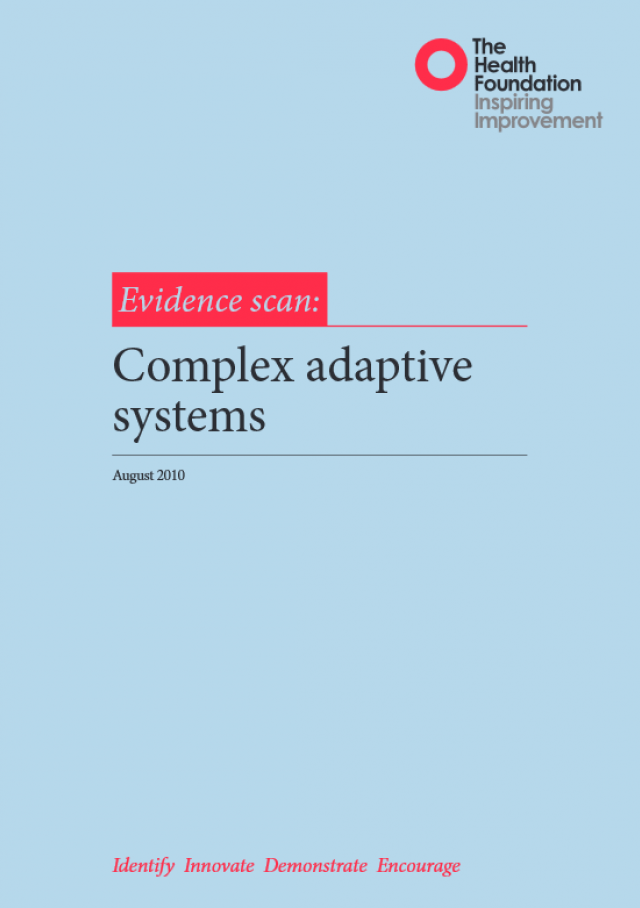Complex adaptive systems
August 2010

Key points
- A complex adaptive systems approach has something to offer when thinking about leadership and organisational development in healthcare, not least of which because it may challenge taken for granted assumptions and prompt people to think in a less linear fashion.
- The most commonly suggested advantages of this approach are that it:
- challenges assumptions
- focuses on relationships rather than simple cause and effect models
- can be applied in a variety of contexts
- provides a framework for categorising and analysing knowledge and agents
- suggests new possibilities for change
- provides a more complete picture of forces affecting change.
This evidence scan collates more than 100 articles about complex adaptive systems thinking in healthcare and other sectors. Its purpose is to provide a synopsis of evidence to help inform discussions and to help identify if there is need for further research or development in this area.
Complex adaptive systems thinking is an approach that challenges simple cause and effect assumptions, and instead sees healthcare and other systems as a dynamic process. One where the interactions and relationships of different components simultaneously affect and are shaped by the system.
Work with us
We look for talented and passionate individuals as everyone at the Health Foundation has an important role to play.
View current vacanciesThe Q community
Q is an initiative connecting people with improvement expertise across the UK.
Find out more

